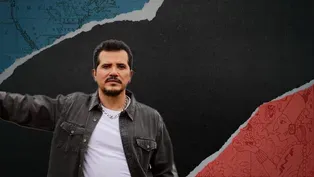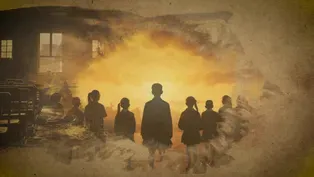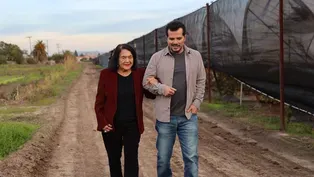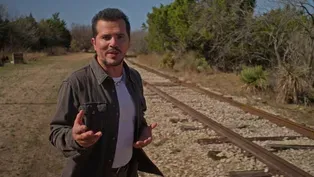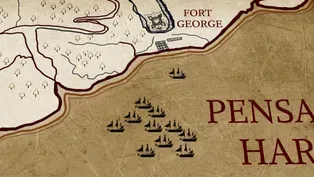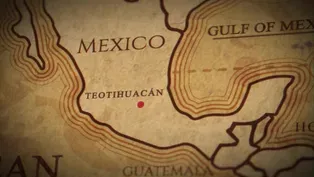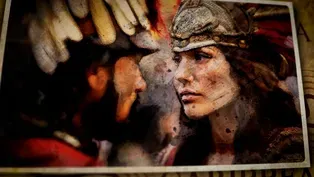
Extended Preview
Preview: Season 1 | 2m 52sVideo has Closed Captions
Join John Leguizamo on a journey into the rich and often overlooked history of Latinos.
Join creator and host John Leguizamo on a quest to uncover Latino and Latina heroes and their contributions. Leguizamo takes viewers on a captivating journey, delving into both well-known and lesser-known stories of Latino history, spanning thousands of years, from the Ancient Empires to the present, and shining a light on the rich and often overlooked history of Latinos.
Problems with Closed Captions? Closed Captioning Feedback
Problems with Closed Captions? Closed Captioning Feedback
Funding for American Historia is provided, in part, by PBS, the Corporation for Public Broadcasting, the Anderson Family Charitable Fund, Sue and Edgar Wachenheim III, The WNET Group’s Chasing the Dream initiative, the Ford Foundation/JustFilms, and Seton J. Melvin.

Extended Preview
Preview: Season 1 | 2m 52sVideo has Closed Captions
Join creator and host John Leguizamo on a quest to uncover Latino and Latina heroes and their contributions. Leguizamo takes viewers on a captivating journey, delving into both well-known and lesser-known stories of Latino history, spanning thousands of years, from the Ancient Empires to the present, and shining a light on the rich and often overlooked history of Latinos.
Problems with Closed Captions? Closed Captioning Feedback
How to Watch VOCES American Historia: The Untold History of Latinos
VOCES American Historia: The Untold History of Latinos is available to stream on pbs.org and the free PBS App, available on iPhone, Apple TV, Android TV, Android smartphones, Amazon Fire TV, Amazon Fire Tablet, Roku, Samsung Smart TV, and Vizio.
Buy Now
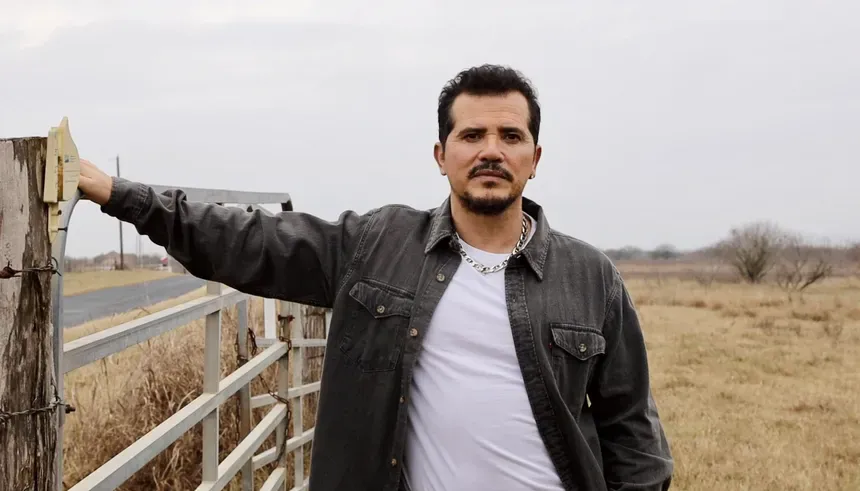
Making American Historia
Ben DeJesus, director of “American Historia,” and John Leguizamo, creator and host, discuss working with historical advisors and how AI technology supported their storytelling initiatives.Providing Support for PBS.org
Learn Moreabout PBS online sponsorshipYou know, when I was growing up in Jackson Heights, Queens, I learned the same history that they taught kids all over America: that George Washington cut down his cherry tree, that Ben Franklin flew his kite, and Abe was honest.
Guess what was missing?
Us -- the Latino contributions to this country.
- People tend to forget that Latinos were here long before the United States existed.
- Most of the history we're still taught is from the point of view of the conquistadors who tried to wipe out any trace of advanced indigenous cultures to justify their massive theft of our new world wealth.
- The sophistication in the arts, in architecture, of these massive cities that were bigger than European cities.
- They invented life-saving medical practices.
They also calculated the movements of the planets, and they wrote it all down in their sacred books.
It's as epic as any of the great wonders you've learned about in history class.
- This is really important for Latinos to know and for other people to know about Latino roots.
- Mexican and Mexican-American people were lynched at rates similar to the rates that Black people were lynched.
- When we talk about executions, it's not like we have to document them, because the Rangers would take pictures.
- We were forbidden to speak Spanish.
And for every word of Spanish that you spoke, we were hit with a bat.
- We were not supposed to have any political rights.
The idea of being a peon was, you take it -- and we didn't take it.
We didn't accept it.
- You can't have a history book about the United States without considering the histories of all of the Latino communities.
- Guy Gabaldon, when he served on Saipan, captured by himself between 1300 and 1500 enemy soldiers.
- We don't just make contributions to U.S. history -- we have changed U.S. history.
- The Young Lords, they drafted the first known Patient Bill of Rights.
And these were kids, by the way!
I would've never thought of the Young Lords - would've created this, yeah.
- I know!
- We come from women who have done this before us, and we stand and we draw our strength from them.
¡Sí, se puede!
The most important thing I think that we have to do is make people understand that we are one human race.
And that way we can stop discrimination, and stop domination.
Sí, se puede.
- [laughing] Awesome, awesome.
- Oh,thank you.
Video has Closed Captions
Join John Leguizamo on a journey into the rich and often overlooked history of Latinos. (2m 52s)
The Fight for Equal Schooling in Mendez v. Westminster
Video has Closed Captions
The 1947 Mendez v. Westminster case was crucial in ending school segregation. (3m 23s)
Dolores Huerta and the United Farm Workers
Video has Closed Captions
John Leguizamo sits down with labor leader Dolores Huerta. (2m 57s)
Traqueros and the Building of the Southwest
Video has Closed Captions
John Leguizamo explores the Mexican traqueros instrumental in building the Southwest. (1m 48s)
Latino Patriots in the American Revolution
Video has Closed Captions
Discover the contributions of Latinos in the fight for American independence. (4m 45s)
Exploring the Tunnels of Teotihuacán
Video has Closed Captions
John Leguizamo journeys into the tunnels beneath the great pyramids of Teotihuacán. (3m 4s)
The Complicated Story of La Malinche
Video has Closed Captions
John Leguizamo and historians explore the complex story of La Malinche. (3m 36s)
Providing Support for PBS.org
Learn Moreabout PBS online sponsorshipFunding for American Historia is provided, in part, by PBS, the Corporation for Public Broadcasting, the Anderson Family Charitable Fund, Sue and Edgar Wachenheim III, The WNET Group’s Chasing the Dream initiative, the Ford Foundation/JustFilms, and Seton J. Melvin.
